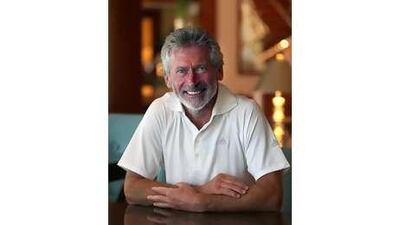In the 1970s Paul Breitner was one of Germany's - and the world's - best footballers. But because of his outspoken nature and refusal to compromise his political beliefs, he was regarded as a rebel and a revolutionary in his homeland. Now an adviser to Bayern Munich and a successful businessman, Paul lives with his wife near Munich.
I had no idea until somebody told me about that before the World Cup in 2006, held in Germany. Then there were only three players: Pele, Vava and me. And then in 2006 it was Zinedine Zidane. Because the second goal had no influence in my career - it was just for nothing. It was the final in 1982 against Italy, which ended three goals to one. I scored the only goal for Germany. On the other hand, when I scored the penalty in the final of 1974 against Holland, it was a fantastic moment. That goal had great influence on my life.
Yes, I could say I was playing two or three decades too early, for the understanding of the crowd. I was a businessman, an entertainer, and if somebody came to me with a contract to cut my beard off, I thought about it and I did it. The beard is not something that's very important for me - I just have it because my wife likes it.
Yes. In the minds of the Germans I was the first player who asked the club president or the manager "why". I was educated to ask questions. When I started in 1970, footballers had to do everything the managers and trainers told them to do. Nobody asked "why" or said "no". It was a shock for the club, the people and the press. The image started there, but I was part of "the 68ers" in Germany. There was a revolution in the minds of the students and I felt like part of them. And so I was interested in the ideas of Mao and Che Guevara - but I wasn't a Maoist or a communist. I had to be interested as a young man, to learn, to make mistakes, and to do better things. But I'm so happy I did it. When will you say "no" or "why" if you don't say it as a young man? Now at 57, I have much more responsibility than I did then.
They have no freedom at all. They cannot think for themselves. Everybody has management groups to decide what the player must do and say. Every comment is corrected and controlled by the management. And they have no freedom because they live more and more in public. From the moment they leave their house, the paparazzi are everywhere. I'm talking about the Beckhams and Zidanes. They have freedom thanks to the amount of money that they earn, especially if they want to do something in the future. But this is not the freedom I'd like to have.
I had no problems with the decision. The president of the German FA called me after Bertie Vogts, who was the national coach, retired. He said German football was in a very bad situation and he needed my ideas, power and help. I said that, of course, I'd like to help but that I was sure that his colleagues at the German FA wouldn't allow me to take the job. There are too many people afraid of Paul Breitner. Seventeen hours later he called and said: "Paul, you were right. It was a brilliant idea, but let's forget it."
jbrennan@thenational.ae

